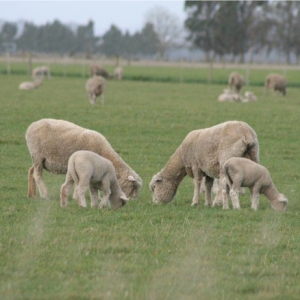The New Zealand sheepmeat industry has been riding a 'rollercoaster of returns' in recent years, according to agribusiness banking specialist, Rabobank.
A perfect storm of high supply, strong local currency and weak consumer demand has reduced returns and some key challenges must be addressed in order to secure a prosperous future for the sector.
In its recently-released report 'Sheepmeat – riding the rollercoaster of returns' reviewing the sheepmeat sectors in New Zealand and Australia, Rabobank says in order to capitalise as conditions improve in established export markets, the sector will need to retain sufficient scale and market presence relative to competing meats.
Rabobank CEO New Zealand Ben Russell says the industry has experienced extreme volatility in returns throughout the value chain, and that is likely to continue with an expected supply shortfall looming in the coming season.
"The New Zealand sheep flock has been declining in size for many years with the drought and lower prices last season likely to see that trend continue next year.
"The shrinking flock has created structural over-capacity that will need to be addressed. However there are risks and practical challenges in achieving this that need to be carefully considered by processing companies.
"Ultimately the path to greater industry prosperity and growth is creating more value for consumers and a more efficient supply chain, including on-farm, procurement, processing and marketing."
Notwithstanding the challenges facing the sheepmeat industry, Russell says Rabobank remains enthusiastic about the long-term potential for the sector in New Zealand, and working alongside its clients throughout the supply chain to capitalise on future opportunities.
Report author, Rabobank animal proteins analyst Matt Costello says that, given the sector's exposure to and reliance on export markets, and the fact that sheepmeat is a higher valued product, the sheepmeat industry is dependent on the economic environment and consumers in these markets.
"Market demand for sheepmeat has been subdued as a result of higher prices and fragile economies, especially in Europe, whereas Asia and the Middle East have emerged as stronger markets and should be cultivated," he says.
"With an improving outlook in some of the lucrative sheepmeat export markets and with the optimism surrounding the potential of developing markets such as China – New Zealand and Australia will be the only countries positioned to supply consumers around the world.
"It is increasingly important that the sheepmeat sector retains significant scale and market presence in comparison to competing meats to remain viable and capitalise on the longer-term growth opportunities."
The Rabobank report finds that the variation in returns for sheepmeat producers and exporters over the past few years has been significant, with "unprecedented" volatility.
Costello says there is a lack of confidence among producers across the sheepmeat industries in both countries.
"The extreme high and low points over the past few years have not helped anyone, only serving to add to frustration and disillusionment," he says.
"In simple terms, historically tight supply from both New Zealand and Australia underpinned the initial surge in livestock prices during 2010 and 2011, and the ensuing weak prices through 2012 and 2013 have been driven by higher short-term production due to the extremely dry conditions across both countries."
While tighter supply in 2013/14 will assist to firm pricing over the coming year, a more sustainable market recovery will need to be driven by improved consumer demand and ultimately a more buoyant global economy.



















